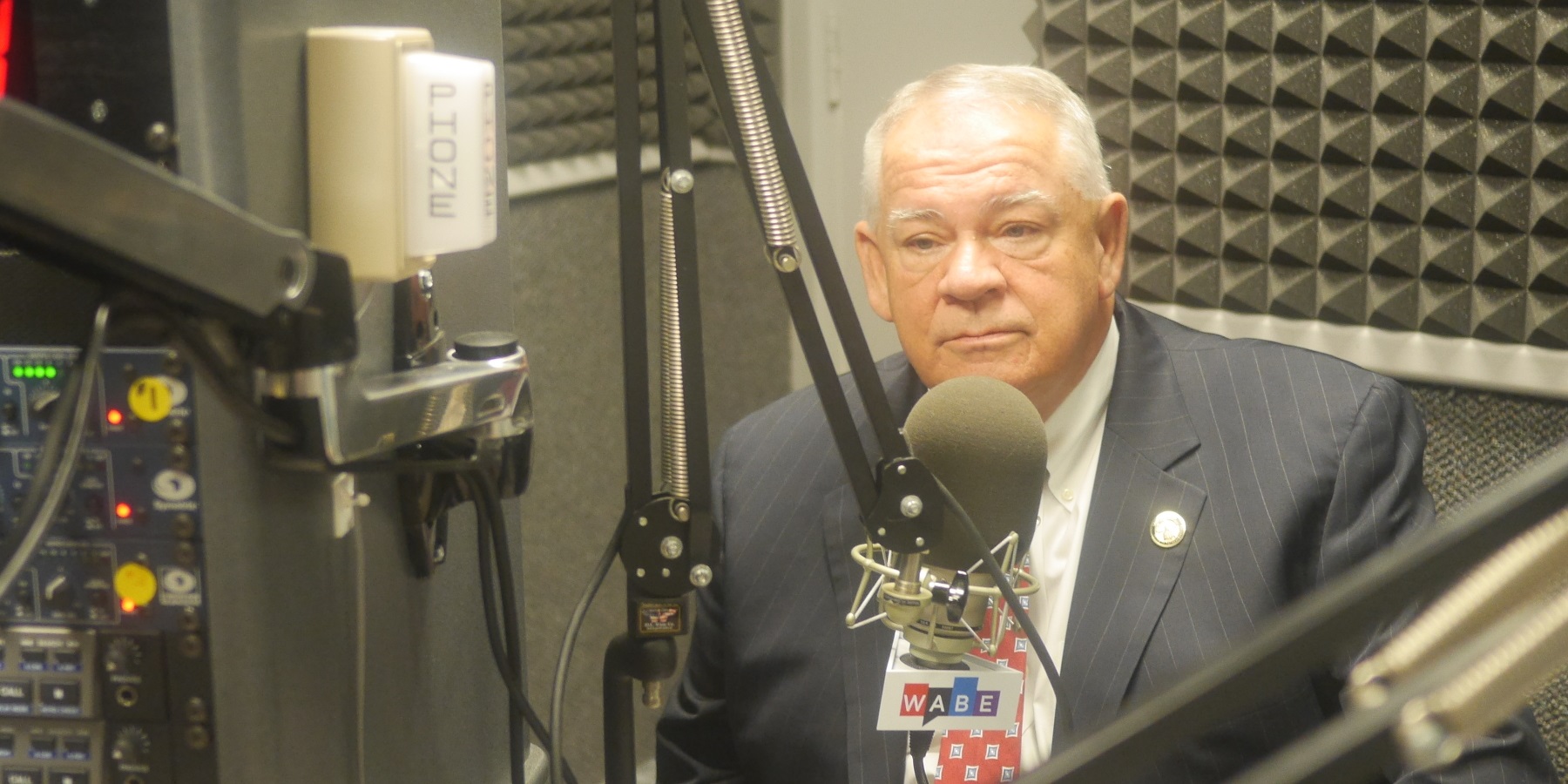In just a month, Georgia lawmakers return to the state Capitol. They have a lot of issues in front of them and some self-imposed pressure to get out fast and start campaigning in an election year.
Like us on Facebook
Before the start of the 2018 legislative session, House Speaker David Ralston, R-Blue Ridge, joined host Denis O’Hayer on “Morning Edition” for a wide-ranging conversation about everything from how the Legislature handles sexual harassment to how state officials can best work with the next mayor of Atlanta.
On whether allegations of sexual harassment at the Capitol will surface this year
I’m not making predictions about that. I certainly hope not. You know, it’s not a perfect environment. I don’t know any environment that is perfect, but you know we have, in our General Assembly employee handbook, spelled out a zero-tolerance for sexual harassment policy.
On the consequences for sexual harassment in the General Assembly
The consequences would be internal sanctions by supervisors or, in the case of members, having their conduct reviewed by the appropriate committees. And in fact, about a week and a half ago, I appointed a joint subcommittee of the Legislative Services Committee to see if there’s improvements we can make. I think that it’s incumbent upon us to always look for ways that we can do things even better.
On whether Georgia lawmakers should be required to take mandatory sexual harassment training
That’s one of the things that subcommittee is looking at. So, we’re not ruling it in or out. What’s important is that we be very sensitive to the seriousness of these allegations and that we be prepared to deal with them. And that in addition to responding to any allegations, we also take proactive measures to make sure that we have a safe and secure working environment for every employee in the General Assembly.
On whether lawmakers should reconsider the state law that bars moving or concealing Confederate monuments
If we are a state, then we share the same history. The history of Georgia is the same whether you live in Blue Ridge or whether you live in Bainbridge or whether you live in Decatur. And so to allow that history to be controlled depending on the jurisdiction you’re in strikes me as being divisive in and of itself. So, I think we have to be very careful as we go forward. You know there’s much about our history as a state that is dark. We share that with other states. But we also are growing, and we have made a lot of progress. And so I would hate to see us become so fixated on looking back that we lose our focus on looking forward as a state.
On whether state lawmakers will consider ‘religious liberty’ legislation
My view now is let’s move forward. This is a big, diverse state, and I frankly don’t plan to spend a lot of time on that issue as we go into this next session.
On whether a debate about ‘religious freedom’ legislation would hurt Georgia’s efforts to attract business
Well, I think you look at other states that have had this debate. North Carolina comes to mind. Indiana comes to mind. The debate has not gone well in those states, to say the least. My focus has been and is on growing economic opportunity for every part of Georgia. And to the extent that any debate … it creates headwinds for that, then I don’t have any interest in doing that frankly.
On building the same kind of close relationship with Atlanta’s Mayor-elect Keisha Lance Bottoms as exists between state lawmakers and Atlanta Mayor Kasim Reed
Mayor Reed had a friendship and a relationship with so many members of the General Assembly from his days of having served there, and those relationships were extremely helpful to cultivating what I believe was the most successful relationship in my memory between City Hall here in Atlanta and the state Capitol. So, I’m hopeful that we will, in time, have the same relationship [with Bottoms]. I look forward to — hopefully very soon — meeting and sitting down with the mayor-elect because Atlanta is a champion city. It’s our state Capitol. I think we’re partners.
Hear part two of the conversation here.









